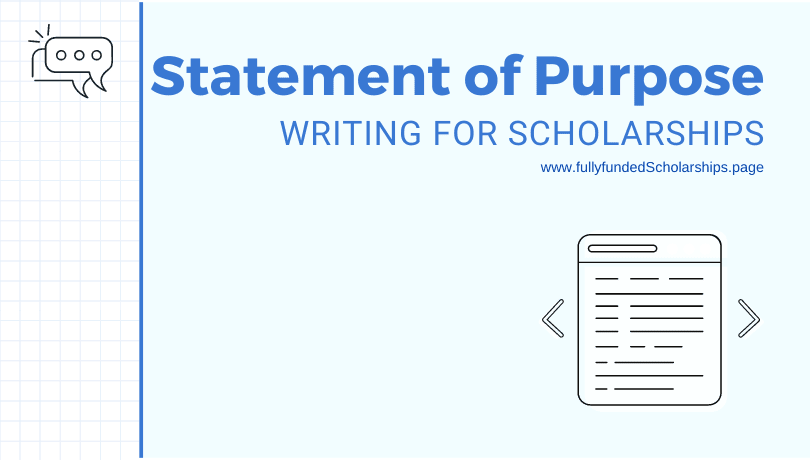
A statement of purpose (SOP) is an integral part of applying for a scholarship. If you are applying for a scholarship in any institution, you will need to write an SOP. Shortly, SOP is a document that emphasizes your purpose of admission to an institution & why you want this scholarship.
Writing a winning SOP for a scholarship application requires thorough attention and creativity. SOP decides whether you are a deserving candidate for this scholarship or not. Thus, the applicant should make SOP creative, engaging & to-the-point.
We are here to provide a step-by-step guide for writing an impressive SOP that secures your chances of being selected for the scholarship.
Introduction to Statement of Purpose (SOP):
A statement of purpose (SOP) is a written document that describes a candidate’s intent behind applying for a scholarship. But that’s not all an SOP does. A Statement of Purpose brings out a candidate’s personality in front of the scholarship committee and helps to make a lasting impression. That means it is an opportunity for the applicant to share their academic and career goals and to explain why they are a strong candidate for the scholarship.
A Statement of Purpose is a required document for scholarship application. Therefore, It should be well-written, free of errors, and tailored to the specific scholarship you are applying for. A strong SOP can help the applicant stand out from other candidates and increase their chances of receiving the scholarship.
What to Include in A Winning SOP?
To write an impressive SOP, you must include the following:
- Begin by introducing yourself and your background. The intro should include your education, work experience, and relevant extracurricular activities. It gives the reader a sense of who you are and your background.
- Explain your academic goals. It should include the degree program you are interested in pursuing and how it relates to your long-term career goals. It helps the reader understand your motivation for applying to the scholarship program.
- Discuss your relevant experiences and skills. It could include academic achievements, research projects, internships, or other experiences that have helped you develop relevant skills and knowledge. It helps the reader understand your qualifications and preparation for the program.
- Explain why you are a strong candidate for the scholarship. It should include any unique qualifications or experiences that make you stand out from other applicants. It helps the reader to understand why you are a good fit for the scholarship program.
- Conclude by stating your commitment to your academic and career goals. Also, explain how the scholarship will help you achieve them. It helps the reader understand your commitment to your goals and how the scholarship will support you in achieving them.
By following these steps, you can create an impressive SOP that will help you stand out from other applicants and increase your chances of receiving a scholarship.
Format to Write SOP?
Here is the possible format you can follow up on while writing a Statement of Purpose:
- Your short introduction
- Your educational background
- Your past achievements
- Role of scholarship in your future goals
- Benefits scholarship will provide
- The average word count is 800-1000 words.
- Take plenty of time to research.
Essential Tips to Consider:
Here are some essential tips to keep in mind while writing a statement of purpose (SOP) for a scholarship application:
- Use simple English. It is essential to use clear and straightforward language that is easy to understand.
- Refrain from repeating what you have already mentioned in the application documents. Avoid repeating information already included in your resume or other application materials.
- Be careful about the word limit. Make sure to stick to the word limit specified in the application guidelines.
- Be positive in your SOP. Focus on your strengths and achievements rather than weaknesses or setbacks.
- Mention your achievements and experiences. Include examples of your accomplishments, such as awards, honors, research projects, internships, or other relevant experiences.
- Make an attention-grabbing and persuasive case. Use clear and persuasive language to make your case for why you are a strong candidate for the scholarship.
- Make sure to proofread. It is essential to present a polished and professional document.










